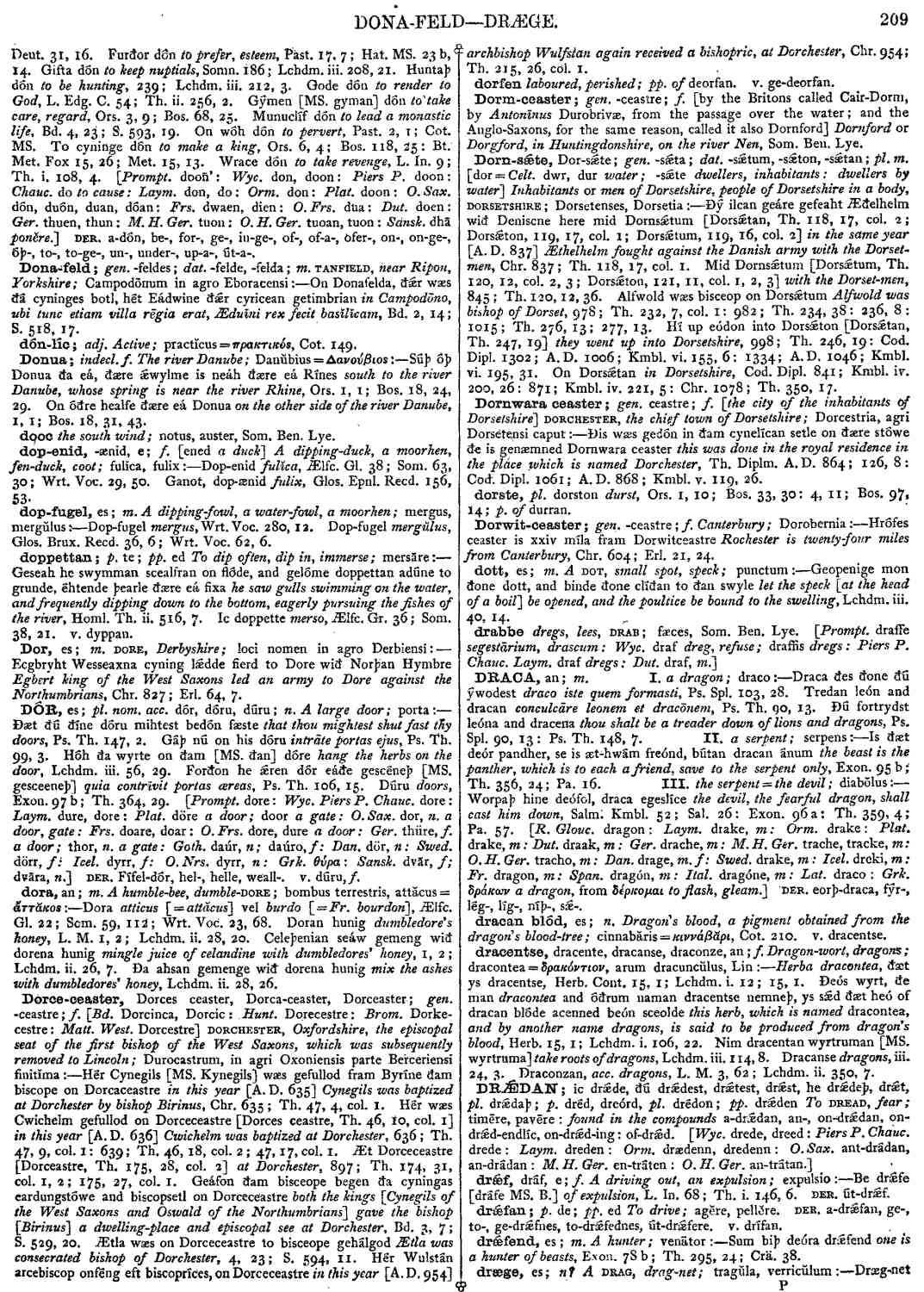DÓR
- noun [ feminineneuter ]
-
Ðæt ðú ðíne dóru mihtest bedón fæste
that thou mightest shut fast thy doors,
- Ps. Th. 147, 2.
-
Gáþ nú on his dóru
intrāte portas ejus,
- Ps. Th. 99, 3.
-
Hóh ða wyrte on ðam [MS. ðan] dóre
hang the herbs on the door,
- Lchdm. iii. 56, 29.
-
Forðon he ǽren dór eáðe gescéneþ [MS. gesceeneþ]
quia contrīvit portas æreas,
- Ps. Th. 106, 15.
-
Dúru
doors,
- Exon. 97 b ;
- Th. 364, 29.
Bosworth, Joseph. “DÓR.” In An Anglo-Saxon Dictionary Online, edited by Thomas Northcote Toller, Christ Sean, and Ondřej Tichy. Prague: Faculty of Arts, Charles University, 2014. https://bosworthtoller.com/7830.
Checked: 1